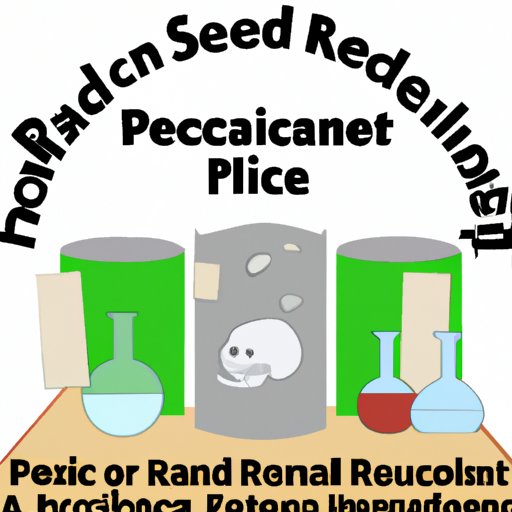Introduction
Bad science is a term used to describe research that is conducted or presented in an unethical or unreliable manner. It can include any scientific study that is based on faulty reasoning, inadequate data or biased interpretations. In addition, bad science can also refer to studies that are conducted without proper ethical guidelines, such as those involving human subjects. The prevalence of bad science can lead to serious consequences, from false medical claims to distorted public opinion.

Recent Examples of Bad Science
In recent years, there have been numerous examples of bad science being reported in the news. For instance, in 2018, a study claiming that eating certain foods could reduce the risk of cancer was debunked by experts, who noted that the study lacked the necessary evidence to support its conclusions. Similarly, in 2019, a study suggesting that taking dietary supplements could help prevent heart disease was discredited due to its reliance on flawed data. These cases demonstrate how bad science can lead to inaccurate information being disseminated to the public.
The prevalence of bad science can also have tangible negative consequences. In 2020, a study claiming that the use of face masks could increase the risk of infection was later found to be based on flawed methodology. This led to a surge in people refusing to wear face masks, which in turn contributed to the spread of the coronavirus.
Different Types of Bad Science
Bad science can take many forms, including pseudoscience, junk science and non-replicable research. Pseudoscience is defined as a set of beliefs or practices that are presented as scientific but do not adhere to the scientific method. Examples include homeopathy, astrology and faith healing. Junk science is research that is conducted with insufficient evidence or incorrect methods, which leads to inaccurate results. Non-replicable research is research that cannot be repeated or verified by other scientists.
Causes of Bad Science
There are several factors that can contribute to the prevalence of bad science. One of the main causes is lack of peer review. Peer review is the process by which scientific studies are evaluated by other experts in the field. Without proper peer review, it is possible for flawed or biased research to be published without being challenged. Political pressure can also play a role, as governments may pressure scientists to produce results that support their agenda.
Financial incentives can also be a factor, as some companies may fund research that supports their products or services. As a result, studies may be conducted in a biased way, leading to unreliable results. Finally, the media can contribute to the spread of bad science, as sensationalized stories may be published without proper fact-checking.

Solutions for Improving Scientific Standards
In order to reduce the prevalence of bad science, it is important to implement strategies to improve scientific standards. One of the most effective ways to do this is to strengthen the peer review process. This can be done by introducing more stringent criteria for evaluating research papers and ensuring that all studies are reviewed by multiple experts. Additionally, governments should refrain from applying political pressure to researchers, and instead focus on providing them with the resources they need to conduct reliable research.
It is also important to ensure that research is conducted in an ethical manner. This includes following ethical guidelines when conducting studies involving human subjects, as well as avoiding conflicts of interest. Finally, the media has a responsibility to report accurate information and should be held accountable for publishing misleading or sensationalized stories.
Conclusion
Bad science can have serious consequences, from false medical claims to distorted public opinion. It is important to understand the causes of bad science and take steps to improve scientific standards. This can be done by strengthening the peer review process, avoiding political pressure and implementing ethical guidelines. By doing so, we can ensure that the scientific community is able to produce reliable and accurate research.
(Note: Is this article not meeting your expectations? Do you have knowledge or insights to share? Unlock new opportunities and expand your reach by joining our authors team. Click Registration to join us and share your expertise with our readers.)
